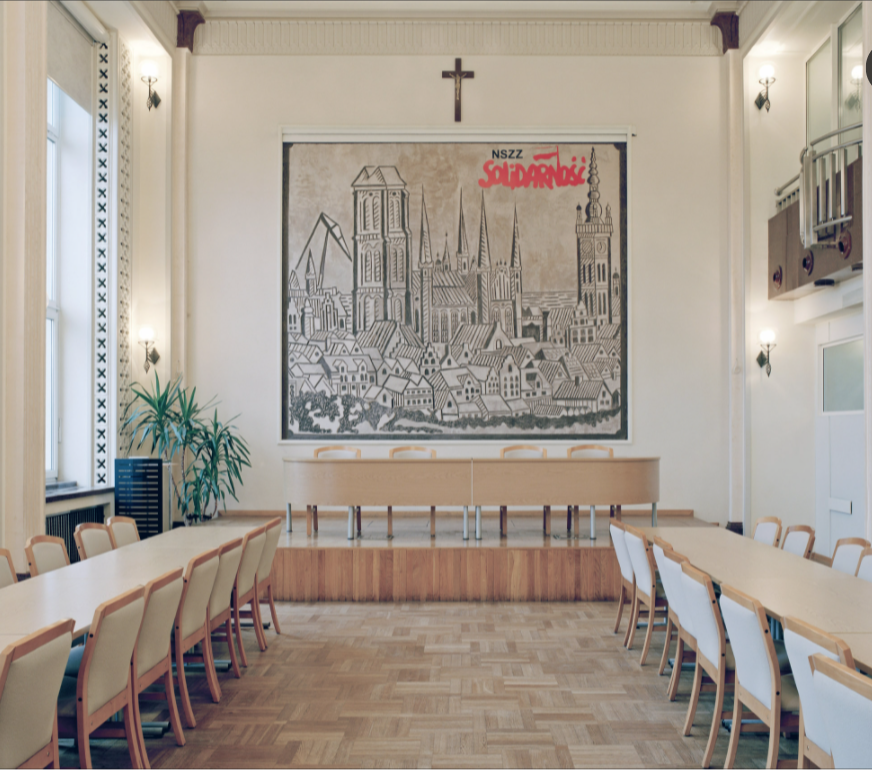- Photo essay of the interior spaces of labor union offices around the world (Pictured above: “Solidarity”; Gdansk, Poland)
- For those who enjoyed Pranab Bardhan’s memoir posts, here is a recent podcast with the famed development economist
- How to embed invisible messages in an an email, that ensures it will go straight to the recipient’s spam folder
- Pasting PDF text to to text!
If you spend a lot of time copying text from PDFs into Word like me, I hope this tip might be useful! If the PDF ends up broken up over lots of lines, there’s no need to fix it manually. Just go to find and replace, type ^p into find, and one space into replace. Pics below :) pic.twitter.com/AqBkxJK1mI
— Dr Alice Hicklin (@alicehicklin) January 7, 2022
- A persuasive Foreign Affairs piece by Stephen Sestanovich, including these excerpts:
In the debate over Ukraine’s possible membership in NATO, neither side takes the other seriously anymore. Those who stand by the open-door policy sound to their critics like defenders of a meaningless principle, not serious diplomatic problem-solvers. Meanwhile, those who favor a permanent ban sound like enablers of Russian imperialism. Each side claims the other threatens the peace and security of Europe.
Both sides may actually be right. Understanding why, however, requires a different debate—one that looks at what being admitted to NATO or kept out permanently would mean for Ukraine. A definitive resolution of its status—one way or the other—would in fact do the country far more harm than good. It would deepen Ukraine’s internal divisions, undermine its stability, and keep the region as a whole in crisis. A serious effort to promote European security needs to focus not only on how to satisfy the great powers but also on how to hold together the country they are so vehemently arguing about. Proposals that ignore Ukraine itself cannot strengthen European security.
…Just as many Ukrainians in the east fear that joining Western institutions will make them enemies of Russia, many in the rest of the country are fiercely determined to continue integrating with the West. A permanent roadblock on the path to NATO membership would dash their hopes. Worse, it would seem to consign them to a Russian sphere of influence in which all important national decisions would be subject to Moscow’s veto.
In their fury at this outcome, some Ukrainians might blame spineless, unsupportive Western politicians. But many more would direct their anger at those of their fellow citizens who they felt had betrayed their country and opened it up to Russian manipulation. Ukraine would become harder to govern. Partisan politics would become more ethnically driven and consumed by the search for an enemy within. And radical militias, which Kyiv has sought in recent years to bring under its control, would once more proliferate.
…some Western policymakers may conclude the best path is continuing—or even increased—strategic ambiguity about how open the door to membership really is. In diplomacy, double talk is often a good choice. But the better way to avoid the drawbacks of leaning too far in either direction is to give the issue as little attention as possible.


One Response
I think the greatest dilemma for Putin in the Ukraine crisis is missing the opportunity to avoid a past mistake. A war would provide the sifting, proving ground & hardening of future leaders that was absent in Gorbachev.